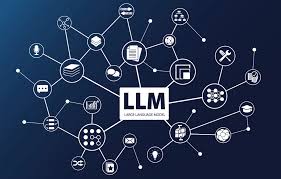Examining the difficulties and possibilities presented by the digital legal revolution shows that combining AI and LLM technologies is essential for differentiating oneself in the market and maintaining competitiveness in the legal industry. When talking about services linked to AI and LLM, it is important to take into account a number of the dynamics present in the traditional legal sector. These models use sophisticated natural language processing solutions and text production to improve productivity, accuracy, and decision-making. Deep learning architectures serve as the foundation for LLMs, which are trained on enormous datasets to comprehend, interpret, and produce human-like language.
LLMs’ Impact on the Legal Sector
Legal labor is highly valued and valuable, as large language models (LLMs) can make unexpected errors. However, they can be useful for low-cost content creation when speed or creativity are prioritized. The global legal services market is projected to reach USD 952.29 billion by 2022.
Opportunities After LLM Implementation in the Legal Industry
Competitive advantage: Legal AI and LLMs provide innovative law firms with a competitive edge by enabling modernization, including quicker legal research, document analysis, and contract drafting.
Improved client service: LLMs and AI in the legal industry allow legal firms to offer their clients more effective services. By combining these technologies with data-driven insights and predictive analytics solutions, legal tactics can be guided toward better results and happier clients.
Scalability and cost-effectiveness: The integration of AI and LLMs streamlines processes, minimizes manual labor, and optimizes resource allocation, supporting growth, scalability, cost reduction, and capacity to manage higher caseloads.
LLMs have potential for transformation but carry risks like hallucinations and misinterpretation. To mitigate these, a dual-review system is implemented, involving legal professionals and LLMs to critically examine each other's work. This approach ensures human oversight for accuracy and contextuality while utilizing LLMs' efficiency.
When used in conjunction with established review standards, legal technology solutions can greatly improve the document processing capabilities of corporate legal departments. In addition to increasing output, this strategic use upholds the strict adherence to accuracy and dependability that characterize the legal profession.
Legal research using LLMs: Large-scale, in-depth analysis
Corporation law is a complex legal environment, requiring extensive study and analysis. Legal Legal Machines (LLMs) have evolved into AI tools to navigate this environment, providing crucial insights for in-house legal departments.
With data analytics solutions that can quickly access and analyze vast amounts of legal data, LLMs function as the modern equivalent of law librarians. This ability is quite helpful when it comes to activities like checking case strategy against precedent, interpreting statutes to create compliance frameworks, and making sure regulatory diligence is done in several jurisdictions.
The Risks to Operations and Ethics
AI and LLMs can save time, but they also pose risks and concerns. Courts and legal organizations often forbid their use in professional activities, and companies should conduct a study to determine their usage. Generative AI technology can create deep fakes, plagiarize, and deliver false information, making it crucial for companies to address these concerns when integrating AI into marketing or business development.
Entering the Future of Legal Industry
To navigate the legal technology revolution, businesses must adopt a strategic vision and proactive measures. Cultivating a culture of inquiry and adaptability is crucial for competitiveness. Investing in AI-savvy workers, such as business analysts and developers, can help maintain competitiveness in the legal market. This can be achieved by enhancing internal IT staff's competencies and utilizing external resources.
In summary
Open-source Learning Machines (LLMs) are revolutionizing artificial intelligence by improving automation, producing innovative content, and supporting research. However, concerns about data privacy, biases, moral dilemmas, and regulatory changes must be addressed to ensure their potential benefits and uphold human rights and values.
A3Logics, an artificial intelligence development company, aims to direct LLMs’ future course so that innovation consistently complies with morality and the interests of humanity as they grow. By choosing us as your partner in legal software development service you can make the best of technology focused on client satisfaction.
For more details: https://www.a3logics.com/blog/llm-for-legal-research/






Comments